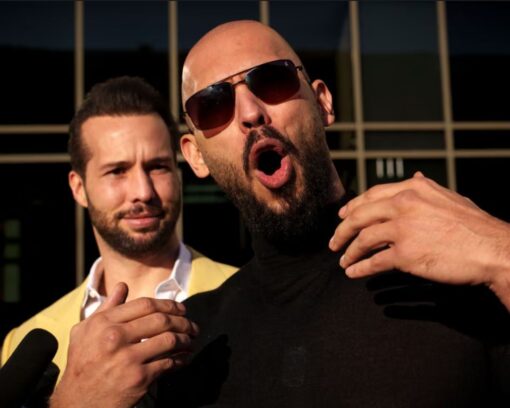Australia’s national broadcaster has been ordered to pay a heavier financial penalty to journalist Antoinette Lattouf after a Federal Court ruling found her abrupt dismissal over a social media post about Israel’s war on Gaza caused significant harm.
The decision has reignited debates about media independence, the limits of impartiality, and the role of public institutions in a country where political tensions over the Middle East are deeply felt.
Federal Court judge Darryl Rangiah ruled that the Australian Broadcasting Corporation (ABC) must pay an additional $98,900 in compensation to Lattouf, on top of $46,100 already awarded earlier this year.

The total now exceeds $145,000, though the journalist stressed the case was never about money. “For me this has always been about accountability and the integrity of the information our public broadcaster gives us,” she said in a statement.
A post that cost her job
The controversy began in December 2023, just three days into a short-term radio contract, when Lattouf shared a Human Rights Watch video on her personal account.
The report accused Israel of using starvation as a “tool of war” in Gaza. The ABC terminated her employment shortly afterward, citing a breach of its social media guidelines.
Judge Rangiah, however, found that the real reason for her dismissal was her political opinion opposing Israel’s military campaign. He described the consequences of the termination as “very significant,” not only financially but also in terms of her professional standing.
“For most people, employment is not just a source of income but contributes substantially to their sense of purpose, identity, and self-worth,” he wrote in the ruling.
The judgment underscored how dismissals tied to political expression can have lasting personal and professional consequences. Rangiah stressed that Australia’s employment law protects workers from being fired for political opinions, even if those views are expressed on social media.
A broadcaster under scrutiny
The ABC, which is funded by taxpayers and widely regarded as a pillar of independent journalism in Australia, said it would “reflect on the lessons” from the case. Managing director Hugh Marks acknowledged mistakes and insisted that the broadcaster must “be better” going forward.
Yet critics argue the problem runs deeper than individual missteps. For years, the ABC has been accused of facing political pressure from successive governments, with both left-leaning and conservative leaders claiming bias at different times.
The Lattouf case now raises fresh questions about whether the broadcaster bends too easily to outside influences when reporting on highly sensitive international conflicts.
According to Lattouf, the ABC spent “well over $2 million of taxpayer money fighting me,” a figure that has fueled public anger. Supporters argue the broadcaster should have focused on defending press freedom rather than silencing one of its journalists.
Context: the Gaza war and global outrage
The case unfolded against the backdrop of Israel’s devastating war on Gaza. The conflict began after Hamas-led fighters attacked southern Israel on October 7, 2023, killing more than 1,100 people and taking around 200 hostages.
Israel responded with a sweeping military campaign that has, according to Gaza’s Ministry of Health, killed over 65,000 Palestinians and wounded more than 166,000 as of September 2025.
Human rights groups, including Amnesty International and the International Association of Genocide Scholars, have concluded that Israel’s actions amount to genocide.
Earlier this month, a UN inquiry formally echoed those findings, accusing Israel of deliberately targeting civilians, bombing densely populated areas, and using starvation as a weapon of war.
It was precisely this allegation — that starvation was being deployed as a tool — which Lattouf highlighted in her social media post, triggering her dismissal.
Free speech versus impartiality
At the heart of the case is a tension that many media organisations worldwide are grappling with: how to balance the personal speech of journalists with the demand for institutional impartiality. The ABC’s guidelines restrict staff from publicly expressing opinions that might compromise perceptions of neutrality, particularly on controversial political issues.
But supporters of Lattouf argue that her dismissal shows those rules are applied selectively. Critics point out that journalists have previously expressed opinions on other global conflicts without facing such severe consequences. They argue the ABC’s reaction reflected disproportionate sensitivity to pro-Israel lobbying groups and political pressure.
The case has since become emblematic of the broader battle over freedom of expression in Australia, where debates on Israel-Palestine often ignite fierce public division.
Global parallels
The ruling also resonates internationally, particularly in countries where media workers face similar pressures. In the United States and the United Kingdom, reporters have been suspended or dismissed for remarks about Gaza that were deemed politically charged.
In Germany, where laws on antisemitism are especially strict, broadcasters have faced controversies over coverage that was perceived as too sympathetic to Palestinians.
In each instance, the central question remains the same: where should the line be drawn between a journalist’s right to express views and an employer’s obligation to appear impartial?
Lattouf’s response
In her statement after the court decision, Lattouf said she hoped the outcome would help restore public trust in the ABC. “I hope the broadcaster takes this opportunity to regain credibility and re-establish integrity, because our democracy depends on a strong fourth estate,” she said.
Her legal team framed the ruling as a victory not only for her but also for all journalists in Australia. They argue it sets a precedent that workers cannot be penalised for expressing political views outside the workplace, especially when those views are consistent with findings by reputable human rights organisations.
Broader political fallout
The decision arrives at a politically sensitive moment for Australia, which has struggled to balance its foreign policy. Canberra has condemned Hamas for the October 7 attacks but has also called for humanitarian pauses and a long-term ceasefire.
Within Australia, public opinion is divided, with pro-Palestinian rallies drawing tens of thousands while pro-Israel groups lobby for stronger alignment with Western allies.
The ABC case adds a domestic dimension to this geopolitical debate. For critics, the broadcaster’s actions reveal how fragile democratic institutions can become when confronted with divisive international conflicts. For others, it highlights the risks of allowing personal opinions to blur professional responsibilities in journalism.
While the financial penalty ordered against ABC is relatively modest compared to its overall budget, the reputational cost may prove more damaging. Spending millions in legal fees while fighting a journalist over a short-term contract has struck many observers as excessive, especially when the broadcaster faces funding cuts and declining public trust.
Hugh Marks’ pledge that “we must be better” may not satisfy those who see the case as symptomatic of a broader erosion of independence. The controversy has already sparked parliamentary questions, with opposition lawmakers demanding greater transparency on how much public money was spent defending the dismissal.

For Lattouf, the outcome is both vindication and a call to action. She insists she will continue advocating for press freedom and accountability in media institutions. Her case has inspired renewed discussions among journalists’ unions and civil liberties groups about revising workplace policies to protect free expression.
For ABC, the task is more complex. The broadcaster must rebuild trust with both staff and audiences, while still upholding the principle of impartiality. Its challenge will be proving that impartiality does not mean silencing voices critical of powerful states or ignoring findings from respected human rights organisations.
As Australia debates the implications, the war in Gaza rages on, with no end in sight. For many, the Lattouf case is a reminder that conflicts abroad reverberate deeply at home — shaping politics, testing institutions, and redefining the meaning of free expression in democracies under strain.


